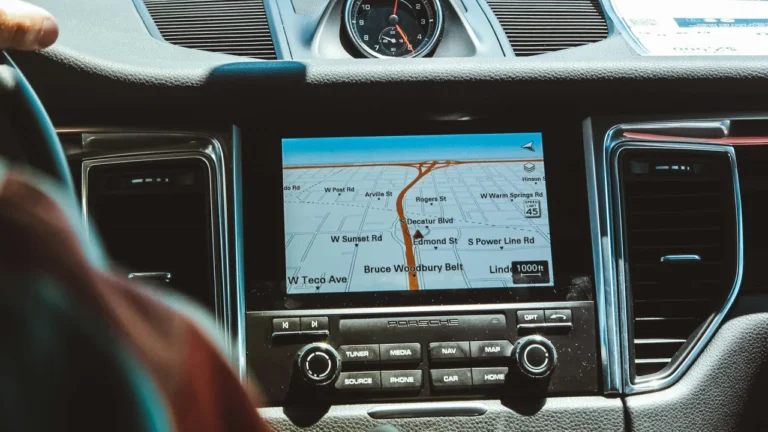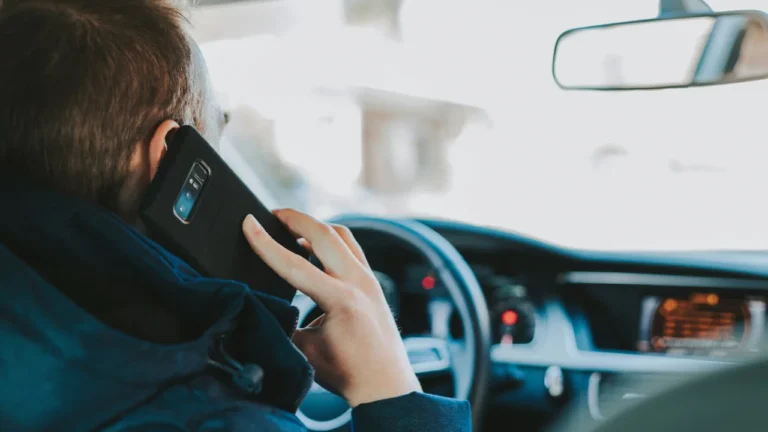Top 8 Questions About Driving Lessons in Abu Dhabi Answered
Getting a driving license in Abu Dhabi involves meeting specific requirements, completing theory and practical lessons, and passing a driving test. Here’s a quick summary of the key points:
- Eligibility: Must be at least 18 years old with a valid residency visa and Emirates ID.
- Required Documents: Emirates ID, passport copy with valid visa, recent eye test, and No Objection Certificate (NOC) for expatriates.
- Costs: Driving courses cost AED 4,500–7,000, plus additional fees for eye tests (AED 100), road tests (AED 200), and license issuance (AED 315).
- Process: Enroll in a licensed driving school, complete theory and practical lessons (20 hours minimum), and pass the theory, parking, and road tests.
- Tips for Success: Practice regularly, focus on test routes, and avoid common mistakes like skipping blind spot checks or improper use of signals.
Whether you’re a beginner or an experienced driver, professional driving lessons in Abu Dhabi provide structured training to help you pass your tests and drive safely. Read on for detailed answers to common questions and tips to prepare effectively.
Driving Lesson Requirements in Abu Dhabi
Age and Residency Requirements
To take driving lessons in Abu Dhabi, you need to be at least 18 years old and have a valid residency visa . Your residency must stay valid throughout the entire process.
Required Documents
Before signing up for lessons, make sure you have the following:
| Document Type | Details |
|---|---|
| Identity Documents | – Emirates ID – Copy of your passport with a valid visa |
| Medical Requirements | – Recent eye test results from an approved clinic |
| Additional Requirements for Expatriates | – No Objection Certificate (NOC) from your sponsor – Passport-sized photographs |
The Emirates ID is a must-have for all applications and acts as your main form of identification . If you’re an expatriate, you’ll also need an NOC from your sponsor, giving permission to apply for a driving license. A recent eye test from an authorized clinic in Abu Dhabi is required to ensure your vision meets the safety standards .
To get your learning permit, you’ll need to enroll in a licensed driving school, complete the theoretical classes, and pass the theory exam . Only after obtaining the permit can you begin practical lessons.
Once you meet the eligibility requirements and have all the necessary documents, the next step is signing up with a licensed driving school.
Enrolling in a Driving School
Once you’ve met the necessary requirements, the next step is picking the right driving school to start your training.
Choosing a Driving School
Oussama is one of Abu Dhabi’s officially recognized driving instructors.
When selecting a school, consider these factors:
| Selection Criteria | What to Look For |
|---|---|
| Accreditation | Official approval from Abu Dhabi authorities |
| Instructor Quality | Skilled and experienced instructors |
| Language Options | Classes offered in your preferred language |
| Location | Easy-to-reach location |
| Schedule Flexibility | Classes that match your availability |
Many schools provide instruction in multiple languages, such as English, Arabic, and French, making it easier for learners from different backgrounds.
Costs and Course Types
Driving courses in Abu Dhabi generally cost AED 3,500–4,200, with full packages priced between AED 4,500–7,000 . These packages typically include:
- Theory Classes: Covering traffic rules, road signs, and safe driving techniques.
- Practical Training: Focused on vehicle control, road maneuvers, and handling real traffic situations.
Most schools require payment upfront, but some may offer installment plans. Be sure to ask for a detailed fee breakdown to avoid unexpected costs, such as medical exams or retake fees.
Once you understand the financial and training commitments, you’re ready to start your driving lessons.
What Happens During Driving Lessons
Theory Lessons
Theory lessons are all about understanding road safety, traffic rules, and essential driving concepts. Driving instructors such as Oussama offer an 8-lesson program to cover these topics.
Here’s a snapshot of what’s included:
| Topic | What You’ll Learn |
|---|---|
| Traffic Rules | Speed limits, right of way, lane discipline |
| Road Signs | Understanding signals, warning signs, and regulatory signs |
| Safety Protocols | Emergency procedures, accident handling, driving in tough weather |
| Vehicle Basics | Mechanics, pre-drive checks, and basic maintenance |
The program uses multimedia tools and interactive sessions to make learning engaging. Students need to show they’ve mastered these topics before moving on to the practical driving test.
Practical Lessons
Practical lessons involve at least 20 hours of driving with a licensed instructor . After completing the theory, students hit the road to put their knowledge into action.
The training focuses on:
- Vehicle control and handling
- Parking techniques
- Navigating traffic and road maneuvers
- Safe driving practices
Lessons start in low-traffic areas, helping students get comfortable before moving to busier roads. Instructors guide students through common challenges, helping them develop safe and reliable driving habits.
With regular feedback and progress assessments, lessons are adjusted to match each student’s pace, ensuring they’re fully prepared for the final driving test.
Preparing for the Driving Test
Driving Test Structure
After completing your driving lessons, the next step is passing the driving test, which assesses whether you’re ready to drive safely on your own. In Abu Dhabi, the test has three key parts:
| Test Component | What It Covers |
|---|---|
| Theory Exam | Knowledge of traffic signs, road rules, and driving etiquette |
| Parking Test | Mastery of various parking maneuvers and techniques |
| Road Test | Driving in real traffic, using signals, and following rules |
During the road test, examiners will check your:
- Control and handling of the vehicle
- Adherence to traffic laws
- Safe driving habits
- Ability to navigate different traffic situations
Tips for Passing the Test
Here are some practical strategies, based on feedback from successful candidates and official guidelines, to help you pass with confidence:
Prepare Thoroughly:
- Focus on practicing areas where you feel less confident.
- Study and drive along common test routes near your driving school.
- Get a good night’s sleep, arrive early with all required documents, and stay calm and focused.
Avoid These Mistakes:
- Not coming to a complete stop at stop signs
- Forgetting to use turn signals or using them incorrectly
- Skipping blind spot checks during lane changes
- Driving too fast or too slow
- Failing to yield to pedestrians
If nerves kick in, try deep breathing to stay calm and keep a positive mindset. Private driving instructors such as Oussama or other authorized schools will ensure you’re well-prepared before scheduling your test .
Now that you know the test structure and preparation tips, let’s dive into more ways to set yourself up for success on the road.
sbb-itb-67b89f5
Additional Tips for Success
Benefits of Taking Professional Driving Lessons
Professional driving lessons in Abu Dhabi offer a structured and personalized approach to becoming a confident driver. Driving instructors such as Oussama and other licensed institutions provide training programs designed to meet individual needs, ensuring a thorough learning experience .
Here’s what you can expect:
| Benefit | Description |
|---|---|
| Personalized Coaching | One-on-one guidance that targets your specific challenges and needs. |
| Structured Learning | A step-by-step curriculum combining theoretical knowledge and practical skills. |
| Progress Tracking | Regular evaluations and feedback to monitor and enhance your improvement. |
Learning Options
Driving schools cater to both beginners and experienced drivers. Beginners can enroll in full programs that cover theory and hands-on training, while experienced drivers might prefer shorter courses focusing on local traffic laws or specific skills .
To make the most of your lessons:
- Practice consistently and stick to a regular schedule.
- Collaborate with your instructor to address areas where you struggle.
- Apply theoretical knowledge during practical sessions.
- Use feedback and practice tests to track your improvement.
Keep in mind that additional expenses, such as eye tests and permits, may apply. With regular practice and the right training program, you’ll not only pass your driving test but also build the skills needed for safe driving in the long run.
Common Questions About Driving Lessons
How Long Does It Take to Get a Driving License?
In Abu Dhabi, the process of obtaining a driving license usually takes around 1-2 weeks .
How Many Practical Lessons Are Needed?
Driving schools in Abu Dhabi require at least 20 hours of practical training. Most beginners complete about 19 classes to develop their skills .
What Are the Costs of Driving Schools?
Beyond the basic training fees, there are additional expenses, such as:
| Fee Type | Amount (AED) |
|---|---|
| Eye Test | 100 |
| License Issuance | 315 |
| Road Test | 200 |
| Training Permit | 100 |
What Skills Are Tested in the Driving Exam?
The driving test in Abu Dhabi assesses several areas :
- Vehicle control: Steering, braking, accelerating, and maintaining safe distance.
- Traffic rules: Adherence to road signs and regulations.
- Parking techniques: Proper execution of parking maneuvers.
- Road awareness: Handling traffic and staying alert.
How to Prepare for the Theory Test?
To get ready for the theory test, focus on:
- Learning traffic signs and road regulations.
- Familiarizing yourself with safety guidelines.
- Using driving test simulation apps.
- Reviewing common driving scenarios and their solutions.
Why Take Professional Driving Lessons?
Professional lessons offer several benefits, including:
- Tailored feedback to improve your driving techniques.
- A clear understanding of local traffic laws.
- Gradual skill-building with expert guidance.
- Insights on avoiding frequent test mistakes.
What Learning Options Are Available?
Driving schools in Abu Dhabi provide:
- Instruction in multiple languages.
- Flexible lesson scheduling.
- Options for manual or automatic transmission vehicles.
- Specialized courses for experienced drivers.
How Can You Ensure Success in the Driving Test?
Here are some tips to boost your chances of passing :
- Practice regularly, especially on test routes.
- Stay calm and focused during the test.
- Follow your instructor’s advice closely.
- Consistently apply the skills you’ve learned.
With these answers, you’ll feel more confident as you start your driving lessons and prepare for your tests in Abu Dhabi. </
Conclusion
Getting a driving license in Abu Dhabi can be a straightforward process with the right preparation and support. This guide has addressed common questions to help you feel ready for each stage of the journey.
The process usually takes 1-2 weeks , covering theory classes, practical training, and final assessments. Success relies on professional instruction, thorough preparation, and understanding the associated costs.
Here’s a quick breakdown of key fees:
| Fee Type | Cost (AED) |
|---|---|
| Eye Test | 100 |
| Training Permit | 100 |
| Road Test | 200 |
| License Issuance | 315 |
Licensed driving schools provide structured training with experienced instructors who are well-versed in Abu Dhabi’s traffic rules. These schools combine theory lessons, hands-on practice, and expert guidance to help you pass your tests and gain the skills needed to drive confidently .
Earning your license means more than just passing tests – it’s about becoming a safe and responsible driver. By following the steps in this guide, you’ll be well-equipped to navigate Abu Dhabi’s roads with confidence and skill.
FAQs
Here’s a quick guide to some common questions about getting a driving license in Abu Dhabi:
How much does it cost to get a driving license in Abu Dhabi?
The total cost includes several mandatory fees: AED 100 for an eye test, AED 100 for opening a traffic file, AED 830 for theory training at EDC, AED 50 for the theory test, AED 100 for a training permit, AED 200 for the road test, and AED 315 for license issuance . Additional expenses depend on your chosen driving school and the number of practical training hours you need. For a detailed breakdown of costs and training packages, check out the "Costs and Course Types" section above.
Is it hard to pass the driving test in Abu Dhabi?
The driving test in Abu Dhabi is known to be challenging, with strict standards for passing. The 15-20 minute assessment covers key skills like using signals, checking blind spots, and maintaining proper speed control . If you don’t pass, you’ll need to complete seven more training hours before retaking the test.
Here are some tips to boost your chances of passing:
- Take lessons from licensed driving schools for structured training.
- Practice regularly, especially on routes commonly used for tests.
- Work on areas where points are often deducted, like parking or lane discipline.
- Stay calm and confident during the test.
Licensed schools offer training programs tailored to help you meet these requirements, making it easier to pass on your first attempt .







